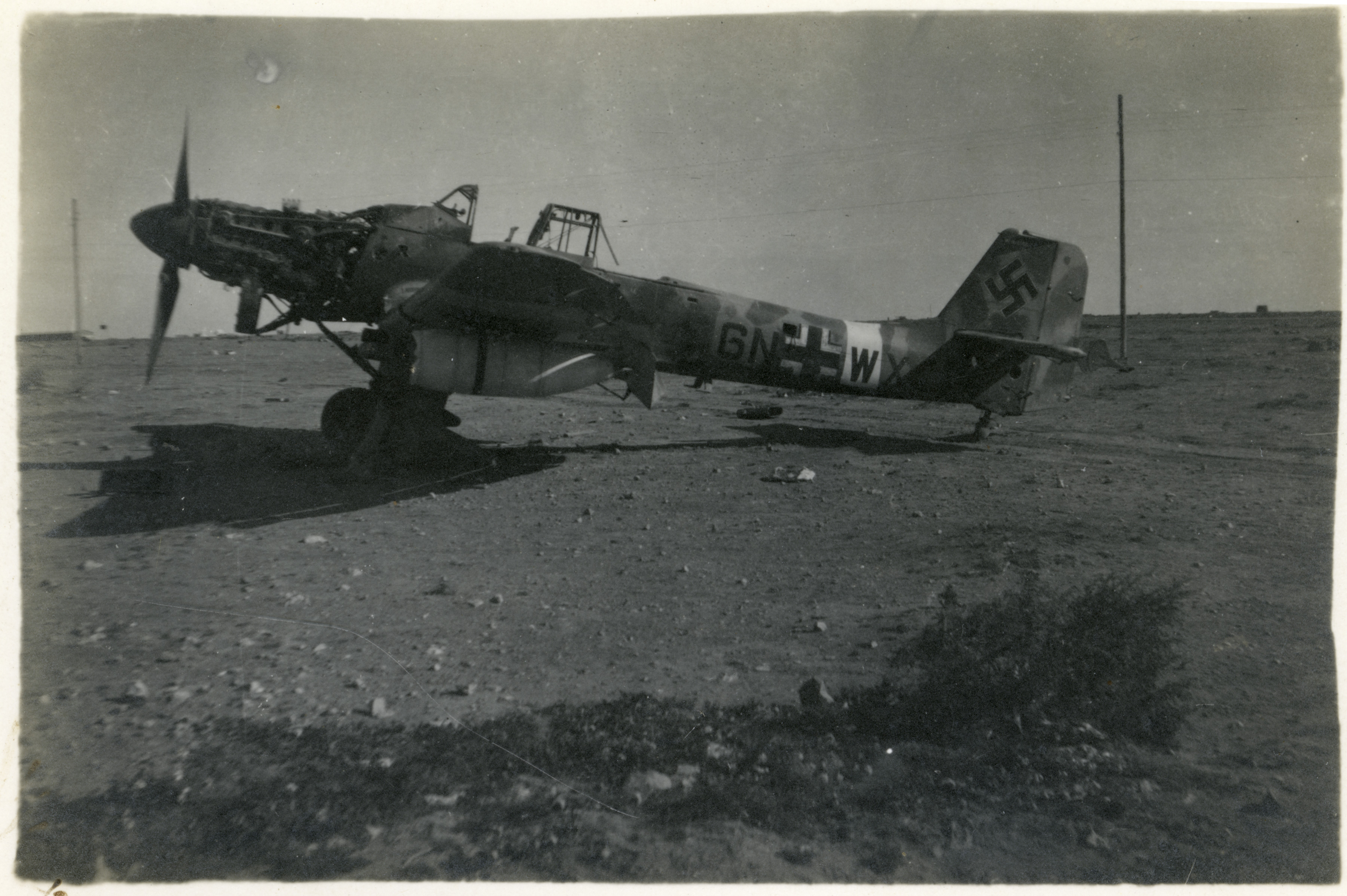Abandoned German Junkers Stuka dive bomber, North Africa (probably), 1942-43

Gift in Memory of L.A. Rogers, from the Collection of The National WWII Museum
Description:
German Junkers Ju 87 G-1 Stuka dive bomber with a "GN" plus a "W" on the rear fuselage right in front of the tail. The airplane is parked in a desert environment and the engine cover and cockpit windows are missing. North Africa (probably). 1942-43
Image Information
Donor:
Accession Number:
Date:
Hometown:
Branch:
Theater of Service:
POW / KIA:
Topical Subjects:
Collection Level:
Lloyd Anthony "Frenchie" Rogers was born on 16 May 1914 at Patterson, Louisiana. He worked in timber and shrimping prior to working for Shell Oil. Lloyd was laid off from Shell in October of 1940 and he enlisted in the U.S. Army Air Corps on 17 October 1940 at Jackson, Mississippi. Rogers underwent basic training at Jefferson Barracks in St. Louis, Missouri and was transferred to the 12th Bombardment Group, 82nd Squadron at McChord Field. He underwent Mechanics School at Rantoul, Illinois and was afterwards reassigned to the 12th Bomb Group, 89th Reconnaissance Squadron (later changed 94th Squadron). Finally he was assigned to the 434th Bombardment Squadron where he served as a crew chief on North American B-25 Mitchell bombers. He served in this capacity from McChord Field, Washington to Esler Field, Louisiana and to North Africa throughout the battle of El Alamein, Sicily, Italy, and the China-Burma-India (CBI) Theater of Operations. He returned to the U.S. in March 1945 and for six months he attempted to get rid of malaria and amoebic dysentery. Rogers received his separation on 10 September 1945 at Camp Shelby in Hattiesburg, Mississippi. At the time of his separation Rogers had attained the rank of technical sergeant.
Geography:
North Africa
Thesaurus for Graphic Materials:
Fighter planes--German--North Africa
Insignia--North Africa

